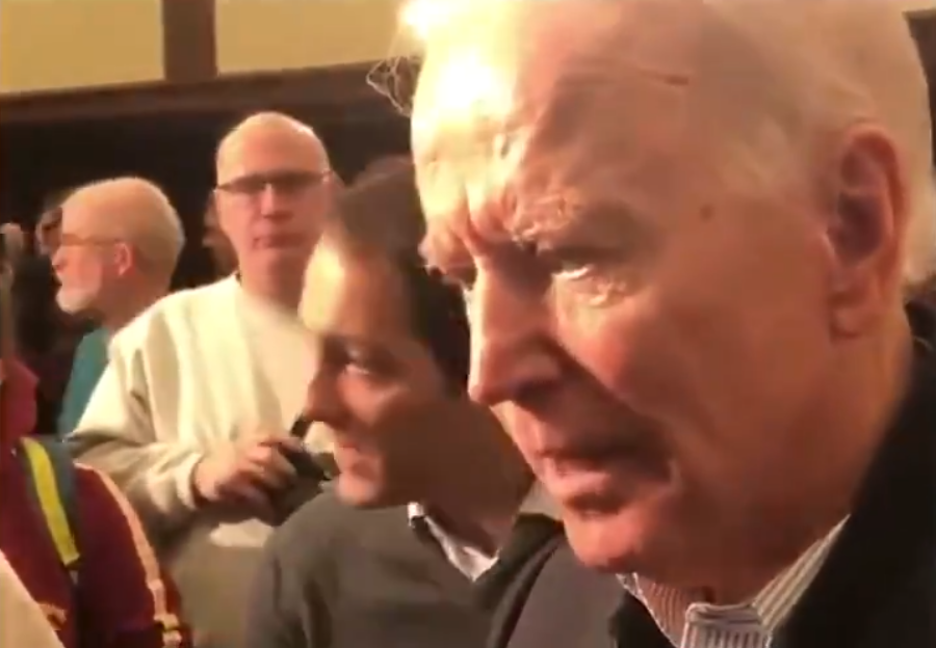“I would transition from the oil industry, yes.”
That was former Vice President Joe Biden in the final presidential debate of 2020, telling voters in Texas, North Dakota, New Mexico, Oklahoma and Colorado, the top-five oil producers in the country, everything they need to know about what his policies will do to their economy.
In addition, Biden promised to get energy production to net-zero carbon emissions by 2035: “[W]e have to move toward a net-zero emissions. The first place to do that by the year 2035 is in energy production. By 2050, totally.”
The U.S. emits about 5.1 billion metric tons of carbon dioxide every year as of 2017, according to the U.S. Energy Information Agency: 45 percent from petroleum, 29 percent from natural gas and 26 percent from coal.
Of the portion of emissions devoted to natural gas, 1.47 billion metric tons a year, 506 million is from electricity generation,and the rest is for heating homes.
62.7 percent of the electric grid — 38 percent natural gas and 24 percent coal — would therefore need to be replaced by 2035, according to Biden’s plan. Biden says he’ll do it with solar and wind, which currently only comprise 9.1 percent of the electric grid, in the debate, he stating, “it has to be replaced by renewable energy over time, over time…”
That puts several more states in the crosshairs. The top natural gas producers in the country are Texas at 8.11 trillion cubic feet a year, 24 percent of the of total production, Pennsylvania at 6.8 trillion cubic feet annually, or 20 percent, Louisiana at 3.2 trillion cubic feet, or 9.3 percent, Oklahoma at 2.9 trillion cubic feet, or 8.5 percent, and Ohio at 2.6 trillion cubic feet, or 7.7 percent, according to the U.S. Energy Information Agency.
Thanks to hydraulic fracturing, the U.S. is energy independent on natural gas and oil.
To placate these states, including Pennsylvania, Biden tried to undo his past statements about eliminating fracking altogether by now claiming his plan is “capture the emissions from the fracking, capture the emissions from gas.”
Biden must have read a poll, or something, because in Dec. 2019, when a voter told Biden in December that he “would love to” ban fracking, Biden declared, “I’d love to, too. I’d love to make sure we can’t use any oil or gas. Period. Now.”
Last year, Biden told a crowd: “Look in my eyes. I guarantee we’re going to end fossil fuel.”
In the July 2019 debate on CNN, Biden said “We would make sure it’s eliminated,” in response to a question about whether his administration would find any place for “fossil fuels, including coal and fracking”.
And in the March 2020 one-on-one debate with Sen. Bernie Sanders’ (D-Vt.), Biden responded to Sanders’ statement that “I’m talking about stopping fracking as soon as we possibly can” with “No more — no new fracking.”
Finally, in the first debate, Biden claimed he didn’t support the Green New Deal, but on JoeBiden.com, his official campaign website, it clearly states “Biden believes the Green New Deal is a crucial framework for meeting the climate challenges we face.”
So, which is it, Joe?
Now Biden says he wants to keep fracking, but just for natural gas, but really it depends on which audience he’s talking to: the radical environmentalists who will run Congress if he wins, or the oil and gas producers. He’s lying to one of them. And next week we’ll find out whether voters in Pennsylvania and elsewhere are willing to bet it wasn’t them he was lying to them.
Robert Romano is the Vice President of Public Policy at Americans for Limited Government.








